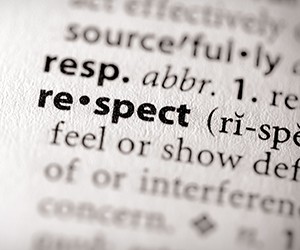No one can accuse Heather Mason, president and owner of A Caspian Production, of not expressing lofty goals when it pertains to the value of meeting planners.
“My entire mission is to show that our industry is worth seven figures—the heck with six!” she exclaims.
And while expressing such seemingly over-the-top aspirations can be excused if one thinks it carries with it a touch of hyperbole, Mason makes some pretty good points and offers a system to back up the enthusiasm.
Mason believes that meeting planners should command organizational and professional respect similar to what project managers command, and that it’s up to planners to develop standards and measurement tools in order to demonstrate their gravitas within their organization.
“If you’re a project manager of a large company, even a vice president can be working for you and under you on a specific project,” she maintains. “Events should work like project management, because they’ve already established the protocol and respect we should be getting.
“It’s about creating a methodology for planning and executing events, using the project management template as a guide,” Mason continues, pointing to the Project Management Professional designation as an example. “A lot of folks will have their own way of planning a meeting, but they’re all different. My philosophy is there should be a systematic series of steps.”
Mason is presenting a session May 25 at HSMAI’s MEET West in Anaheim, Calif., on three essential concepts pertaining to increasing the profile—and ultimately pay—of meeting planners: Success Metrics, Roles and Responsibilities, and Internal and External Communications Plans.
“These three are really about positioning, authority and taking command,” she says. “Regardless of what the formal title is of the event professional on the project, they need to be seen as a leader, and these are the tools that will get them there.”
To help accomplish the three principles, Mason has modeled a system called The Caspian 10 Essentials that is modeled after the Project Management Professional system. Mason says her company recently offered training to England’s famed Oxford University on her modular system, and also offers it for in-house organizational teams as well as third-party vendors.
“It demonstrates to senior management that the event role can bring a lot of strategy and puts a lot of power in the event professional’s hands,” she explains. “If we can also attract a senior manager to sit in on just one of those 10 Essentials, we find that we give the team a lot of ammo to increase their profiles. They usually cheer some of the things they learn, and say ‘I wish my senior management could hear this!’”
And although many C-level executives may not readily realize it, an awful lot of risk and potential reward can ride on a meeting, and meeting and event planners have a significant amount of influence on which of those two directions the event may take. But it’s up to them to make sure that message is delivered.
“How can they use that [level of responsibility information] to position themselves as the authority of the event and get proper staffing and resources?” she asks. “If you’re not seen as in that position, then you’re dealing with having tape and glue to build a Mercedes.”







